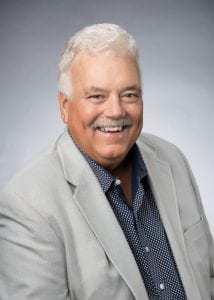Work session outlines process to fill vacancy created by Scott Campbell’s election
VANCOUVER — During a work session Monday afternoon, members of the Vancouver City Council discussed the process for filling a vacancy on the council left by Scott Campbell.
Campbell had run for Position 1 to replace outgoing Council Member Jack Burkman. Campbell passed away on Sep. 17, but was the winner of the council race.
The Vancouver City Council is now tasked with appointing a member to serve in Campbell’s place during 2018, until voters have an opportunity to decide in the Nov. 2018 general election who will hold the Position 1 seat for the duration of the term.

City Manager Eric Holmes addressed the council during the work session, saying that the council members must review the application and appointment policy and then give direction to staff before the process for reaching out to candidates can begin.
Bronson Potter, city attorney for Vancouver, presented an outline of the appointment process to the city council and answered questions from the council members regarding the process.

The process of selecting the new council member officially begins when the council announces the vacancy and need for applications, Potter said. Announcements and media releases begin circulation on Dec. 29 and will run for three weeks.
Potential candidates can apply to the position beginning Dec. 26, and the application period remains open until Jan. 16, Potter said. The application is “very short and simple,” Potter said, and consists of basic questions about the candidate.
One of the requirements is that the candidate undergo a background check, and that they cannot have been convicted of a felony if they wish to serve on the city council.
Council Member Ty Stober asked from where the guidance for a background check and the felony prohibition was derived.
Bronson said that the requirement to not be a felon came from the state constitution, which says that to be eligible to hold office, a candidate must not have been convicted of an “infamous” crime.
Council Member Jack Burkman expanded on the council’s concerns with candidates having criminal backgrounds, and asked if it was possible for an individual to file to run for office but then “never be sworn in because they wouldn’t qualify.”
Bronson said that it was his understanding that the statement was correct.
Council members also brought up concerns about an application question that asked that candidate to describe anything in their history that may bring “discredit” to the city.
Council Member Alicia Topper voiced concerns that the question was “subjective,” and suggested that the council propose a different wording of the question.
Potter then outlined a list of five possible options for the council to use to select a candidate. The council members all agreed that the best option was to have an executive session for each council member to select the candidates they would want interviewed. All applicants would come to city hall, and then those selected to be interviewed would be sequestered and then interviewed. From that pool, the new council member would be chosen.
Applications must be provided to the city council by Jan. 19, and the candidates will be announced in a press release on Jan. 24, Potter said. Background checks will be completed by Feb. 2, and the actual selection process will happen at a meeting of the council on Feb. 5, with a continuation on Feb. 6 if the need arises.
Council members also discussed the interview process at the work session, and the members discussed the amount of interaction they would be comfortable having with the candidates before the interview.
Burkman raised the issue of whether the council members could talk with the candidates before the interview and what kind of interaction that could happen. “You either talk with everybody or nobody,” Burkman said.
Stober said that his approach would be “mentoring at the broadest sense, at the broadest possible level,” meaning he would provide general information to any candidate that asked.
Council Member Bill Turlay said that he would answer general questions, but would not “tutor” the candidates. “I don’t think it’s up to me to try to coach somebody else because I like them better than another candidate,” Turlay explained.
The issue of candidates with felony records potentially applying then arose again. The council found that there was confusion on eligibility with felony records, particularly pertaining to the issue of having one’s rights restored.
Bronson said that he would further examine the issue and report back to the council.
The council members again debated whether to include a question on the application that asked if the candidate had any history that could “discredit” the city, and several asked why the application had a background check requirement when no such requirement was in place to run in an election.
Burkman said that in a regular election campaign, there is time for candidates to be scrutinized, and their backgrounds would naturally be uncovered. When a council is appointing a new member, there is no such process of public scrutiny. Burkman said that the best way to substitute that scrutiny was to conduct a background check.
Several council members, including Stober and Topper, wanted to change the question regarding discredit to the city to be more general and open. However, both Turlay and Mayor Timothy Leavitt wanted the question to remain more specific. The council decided to not alter the question.
“It’s kind of an opportunity for someone to be transparent,” Leavitt said.
The council members will meet on Feb. 5 during a special city council meeting to undergo the interview and selection process, and the candidate selection will be decided at that date, or on Feb. 6 if the interviews dictate more time being necessary.




